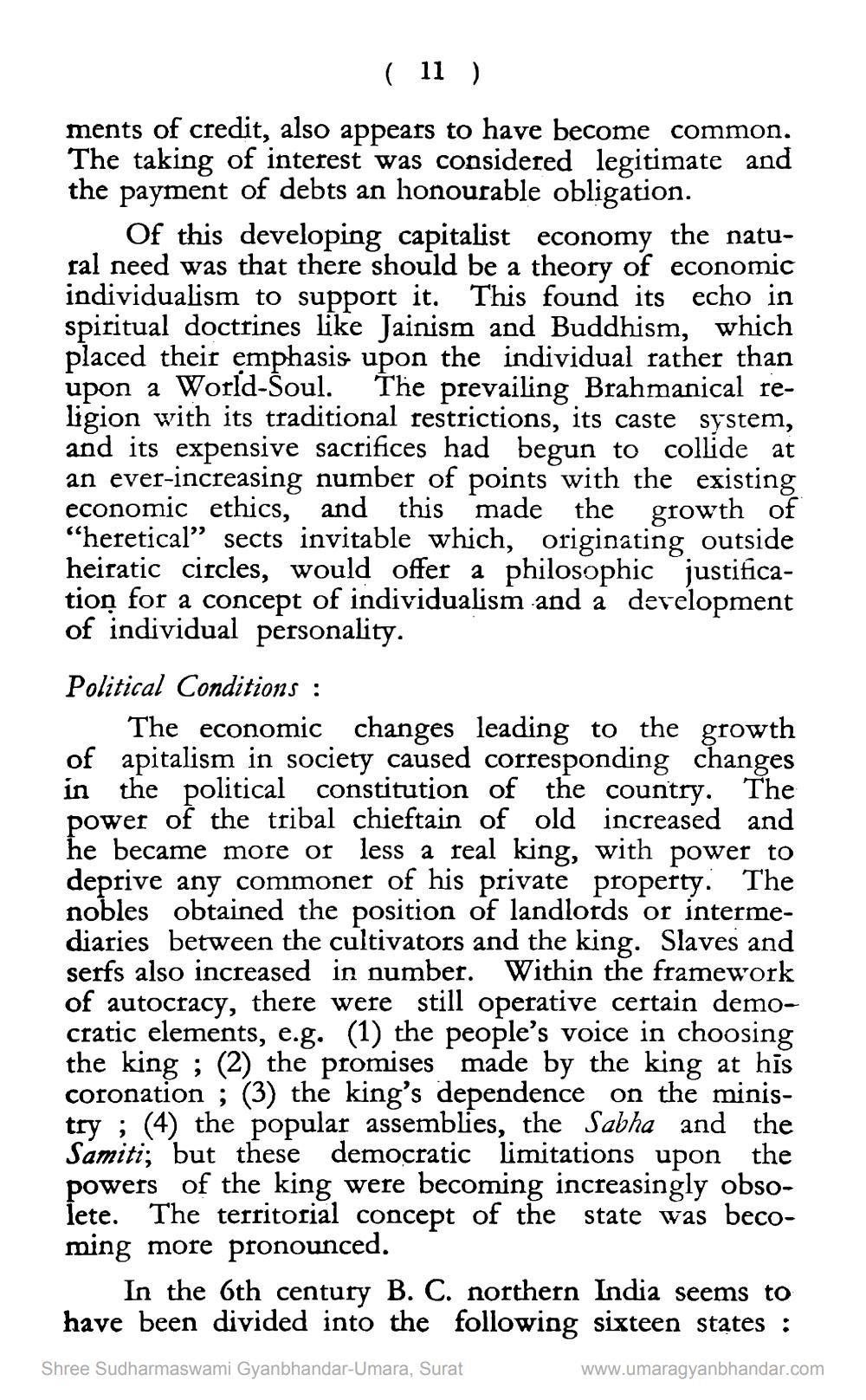________________
( 11 )
ments of credit, also appears to have become common. The taking of interest was considered legitimate and the payment of debts an honourable obligation.
Of this developing capitalist economy the natural need was that there should be a theory of economic individualism to support it. This found its echo in spiritual doctrines like Jainism and Buddhism, which placed their emphasis upon the individual rather than
upon a World-Soul. The prevailing Brahmanical religion with its traditional restrictions, its caste system, and its expensive sacrifices had begun to collide at an ever-increasing number of points with the existing economic ethics, and this made the growth of "heretical" sects invitable which, originating outside heiratic circles, would offer a philosophic justification for a concept of individualism and a development of individual personality.
Political Conditions :
The economic changes leading to the growth of apitalism in society caused corresponding changes in the political constitution of the country. The power of the tribal chieftain of old increased and he became more or less a real king, with power to deprive any commoner of his private property. The nobles obtained the position of landlords or intermediaries between the cultivators and the king. Slaves and serfs also increased in number. Within the framework of autocracy, there were still operative certain democratic elements, e.g. (1) the people's voice in choosing the king; (2) the promises made by the king at his coronation; (3) the king's dependence on the ministry; (4) the popular assemblies, the Sabha and the Samiti; but these democratic limitations upon the powers of the king were becoming increasingly obsolete. The territorial concept of the state was becoming more pronounced.
In the 6th century B. C. northern India seems to have been divided into the following sixteen states :
Shree Sudharmaswami Gyanbhandar-Umara, Surat
www.umaragyanbhandar.com




